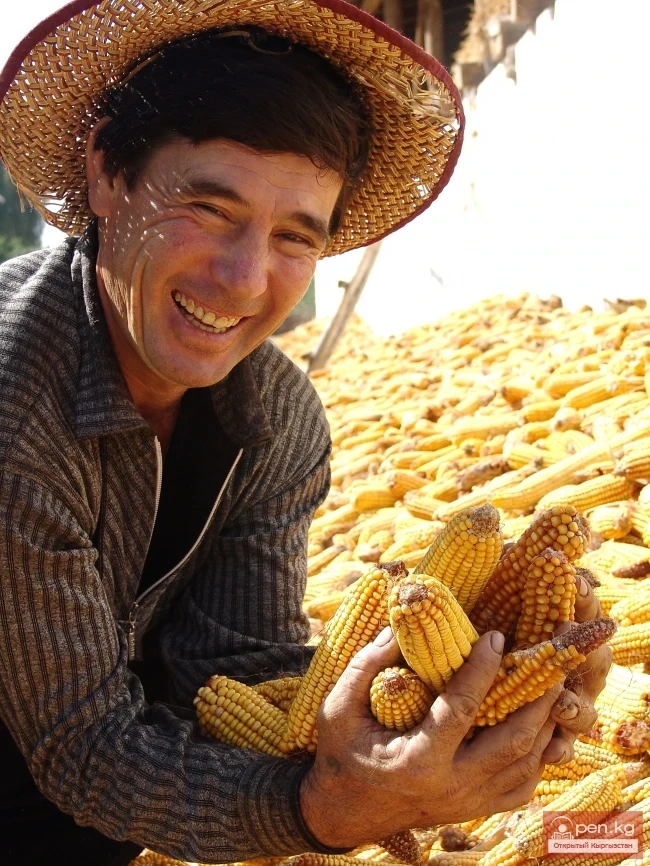The Celebration of Chechkore
Chechkor Holiday – the Harvest Festival – has been celebrated among the Kyrgyz people since ancient times. It was associated with the threshing of the harvest. Like throughout Central Asia, the mythical figure considered the patron and first teacher of farmers was the saint Babadykan. Another revered mythical figure was the saint Kydyr-ake – the giver of abundance, luck, a well-wisher, and protector of good people, workers, and travelers. The Chechkor holiday and all the rituals performed were dedicated to them. Due to the belief that Babadykan and Kydyr-ake might honor the given granary (kyrman) with their visit and thus contribute to the success of work at the threshing floor and the multiplication of grain, it was required that cleanliness and order be maintained there, and all the magical prescriptions sanctified by tradition be followed. Thus, everyone was to come to the threshing clean (having performed a ritual washing or bathed in a river or irrigation canal) and in clean clothes.
At the threshing floor, to avoid fire, it was not allowed to light a fire. It was also forbidden to keep water there, as it was believed that the grain would become damp from the water, and that Babadykan and Kydyr-ake would flee from the water. This same water could allegedly attract clouds and rain. If a dog wandered onto the threshing floor, it was not chased away, and if a snake crawled in, it was not killed, but carefully pushed aside and milk was poured over it. These visitors were very welcomed, as it was believed that in their form Babadykan and Kydyr-ake could appear and dip their finger into the grain. Anyone passing by or entering the threshing floor greeted those working with the words: “Ichke bereke” (“Good harvest”).
The threshed, sifted, and winnowed grain was collected in the center of the threshing floor. The straw was removed, the threshing floor was swept, and the prescribed traditional rituals were performed. The owner of the threshing floor climbed onto the pile of grain, tamped it down, then took grain from the pile in a wooden measuring container holding about a pood and, holding it in his hands, walked around the pile, pouring grain along the edge. Taking a wooden shovel in his hands, with the words: “Bismillah irrahman irrahim,” he drew a line with the handle of the shovel approximately in the middle of the pile of grain, moving to the right, as if “girdling” it. This was a sign for Babadykan and Kydyr-ake, so that when they came to the threshing floor, they would walk around the grain and bless it with their grace. After this, he crossed two more lines with the ends descending to the “belt.” One of the lines was directed towards the qibla – the direction where Mecca and the Muslim holy sites are located. Then, on this side facing the qibla, he stuck the handle of the shovel, broom, or pitchfork into the grain. In Kyrgyz, “chech” refers to five-pronged pitchforks used in work at the threshing floor. This word is what the harvest festival is named after – Chechkor.
Having processed the grain in this way, the owner, reciting a prayer, took a full bowl of grain and poured it separately, away from the rest. This part was intended for widows, orphans, and the poor.
The next custom was the sprinkling with blood. For this, each owner would cut a sacrificial animal – a ram, lamb, or kid – right next to the pile of grain. He would sanctify his harvest and the threshing floor with the blood of the victim, offered “for the path of God” in the name of the saints Babadykan and Kydyr-ake. According to beliefs, the blood of the victim, soaking into the ground, would convey its grace to the granary. The blood was sprinkled on the shovel, pitchfork, and broom stuck into the ground.
The meat of the sacrificial animal was cooked nearby, close to the threshing floor. All the neighbors were invited for a feast. The meal was sanctified by the reading of the Quran in honor of Babadykan and Kydyr-ake.
The pile of cleaned grain was left on the threshing floor overnight, and in the morning it was poured into bags, sewn up, and taken home.
Read also:

Tourist Area Management Program
The project "USAID Business Development Initiative" (BGI), within the tourism...
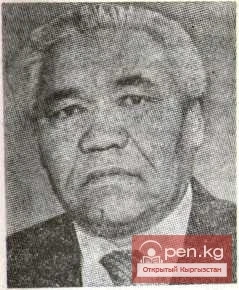
Prose Writer Kachkynbay (KYRGYZBAI) Osmonaliev
Prose writer K. Osmonaliev was born on March 5, 1929, in the village of Chayek, Jumgal district,...

Prose Writer, Journalist Djapar Saatov
Prose writer, journalist Dzh. Saatov was born on February 15, 1930, in the village of Alchaluu,...

Prose Writer, Critic Dairbek Kazakbaev
Prose writer and critic D. Kazakbaev was born on June 20, 1940, in the village of Dzhan-Talap,...

Types of Insects Listed in the 2004 IUCN RLTS Not Included in the Red Book of Kyrgyzstan
Insect species listed in the 2004 IUCN RLTS, not included in the Red Book of Kyrgyzstan 1....

Poet, Prose Writer Tash Miyashev
Poet and prose writer T. Miyashev was born in the village of Papai in the Karasuu district of the...
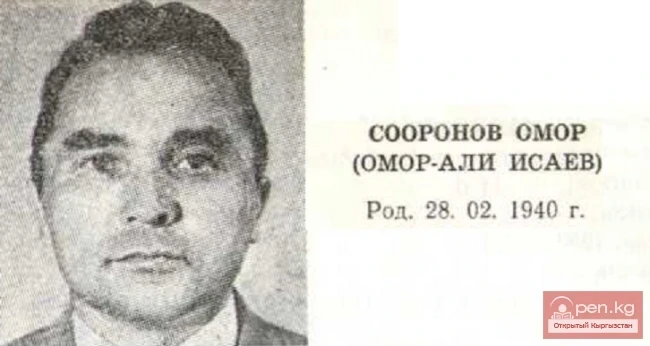
Poet, Critic, Literary Scholar Omor Sooronov
Poet, critic, literary scholar O. Sooronov was born in the village of Gologon in the Bazar-Kurgan...

The Poet Baidilda Sarnogoev
Poet B. Sarnogoev was born on January 14, 1932, in the village of Budenovka, Talas District, Talas...
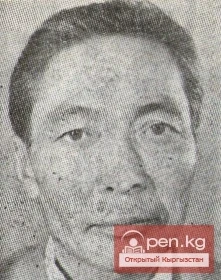
The title translates to "Poet Soviet Urmambetov."
Poet S. Urmambetov was born on March 12, 1934, in the village of Toru-Aigyr, Issyk-Kul District,...
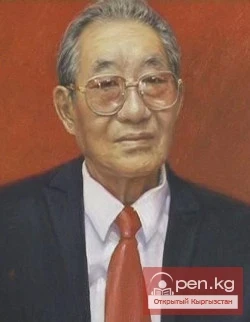
Poet, Prose Writer Isabek Isakov
Poet and prose writer I. Isakov was born on September 1, 1933, in the village of Kochkorka,...

Poet, Prose Writer Medetbek Seitaliev
Poet and prose writer M. Seitaliev was born in the village of Uch-Emchek in the Talas district of...

Types of Insects Excluded from the Red Book of Kyrgyzstan
Insect species excluded from the Red Data Book of Kyrgyzstan Insect species excluded from the Red...
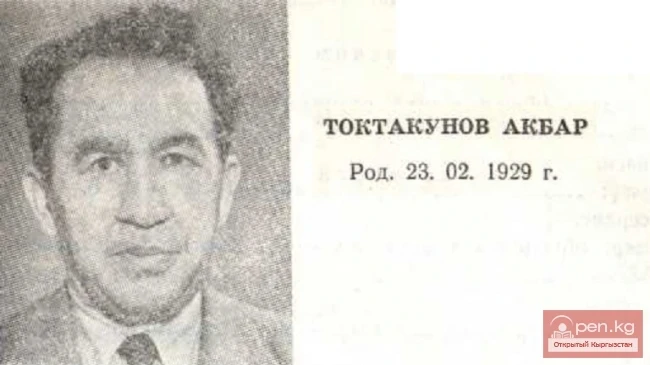
The Poet Akbar Toktakunov
Poet A. Toktakunov was born in the village of Chym-Korgon in the Kemin district of the Kyrgyz SSR...
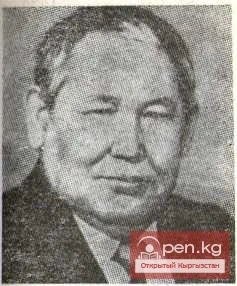
Poet, Critic Asylbek Medetbekov
Poet and critic A. Medetbekov was born on June 29, 1939, in the village of Ken-Aral, Leninpol...

The Poet Kubanych Akaev
Poet K. Akaev was born on November 7, 1919—May 19, 1982, in the village of Kyzyl-Suu, Kemin...
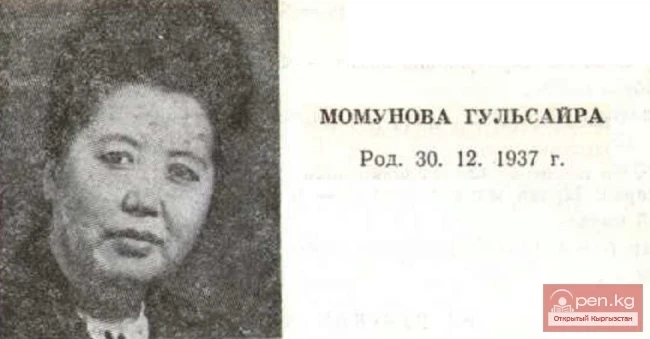
The Poet Gulsaira Momunova
Poet G. Momunova was born in the village of Ken-Aral in the Leninpol district of the Talas region...
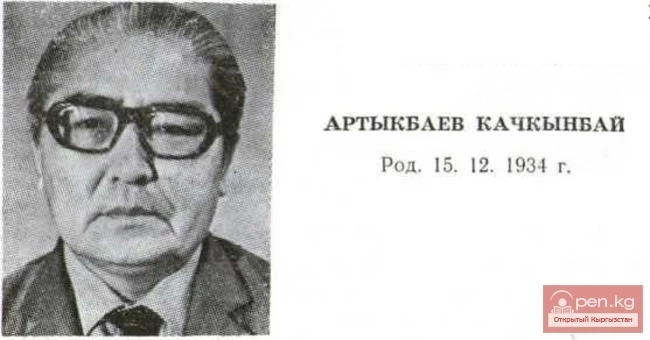
Critic, Literary Scholar, Poet Kachkynbai Artykbaev
Critic, literary scholar, poet K. Artykbaev was born in the village of Keper-Aryk in the Moscow...

Types of Higher Plants Listed in the "Red Book" of Kyrgyzstan (1985)
Species of higher plants removed from the "Red Book" of Kyrgyzstan (1985) Species of...
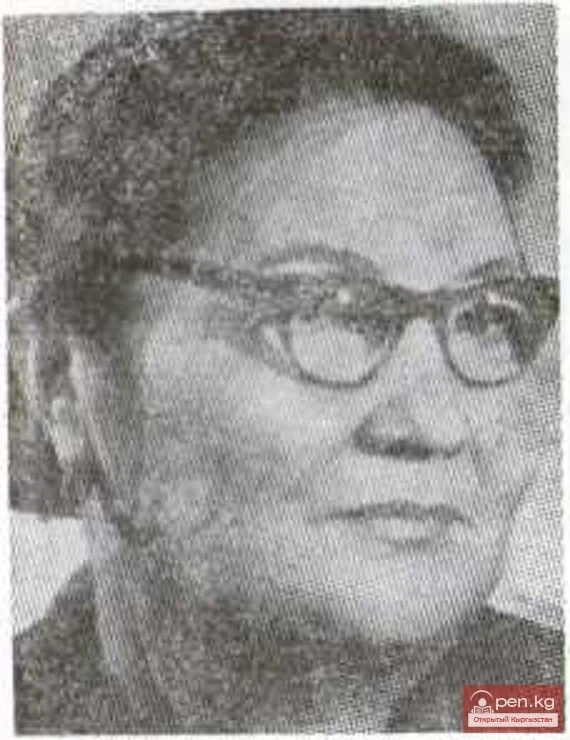
The Poet Tenti Adysheva
Poet T. Adysheva was born in 1920 and passed away on April 19, 1984, in the village of...
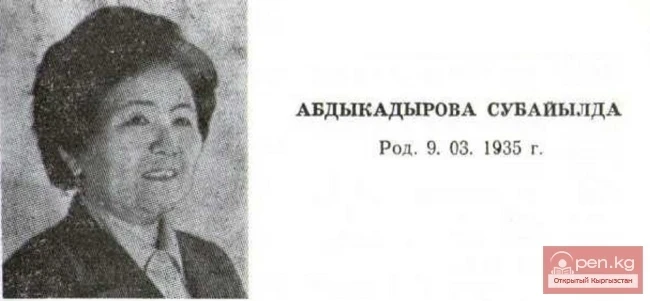
The Poet Subayilda Abdykadyrov
Poet S. Abdykadyrova was born in the village of Sary-Bulak in the Kalinin district of the Kirghiz...

The Poet Sooronbay Jusuyev
Poet S. Dzhusuev was born in the wintering place Kyzyl-Dzhar in the current Soviet district of the...
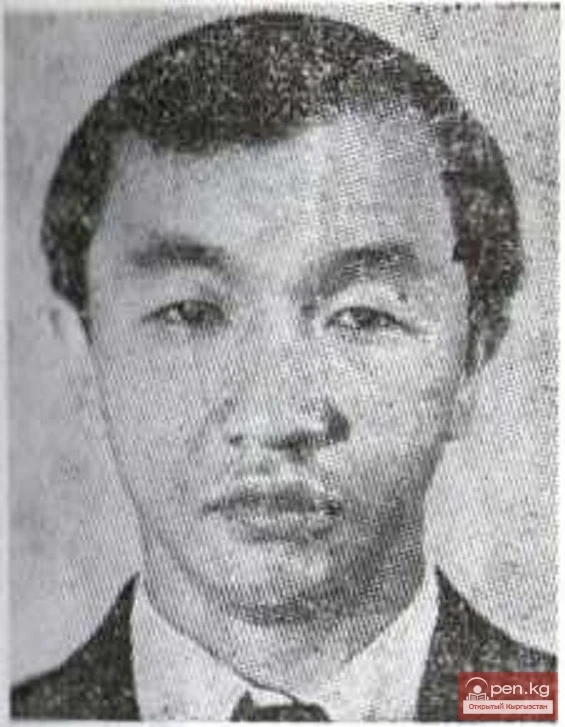
Critic, Literary Scholar Abdyldazhan Akmataliev
Critic and literary scholar A. Akmataliev was born on January 15, 1956, in the city of Naryn,...
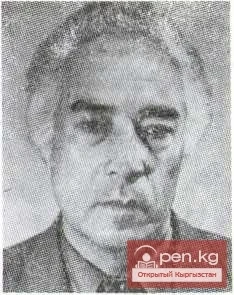
Poet, storyteller-manaschi Urkash Mambetaliev
Poet, storyteller-manaschi U. Mambetaliev was born on March 8, 1934, in the village of Taldy-Suu,...
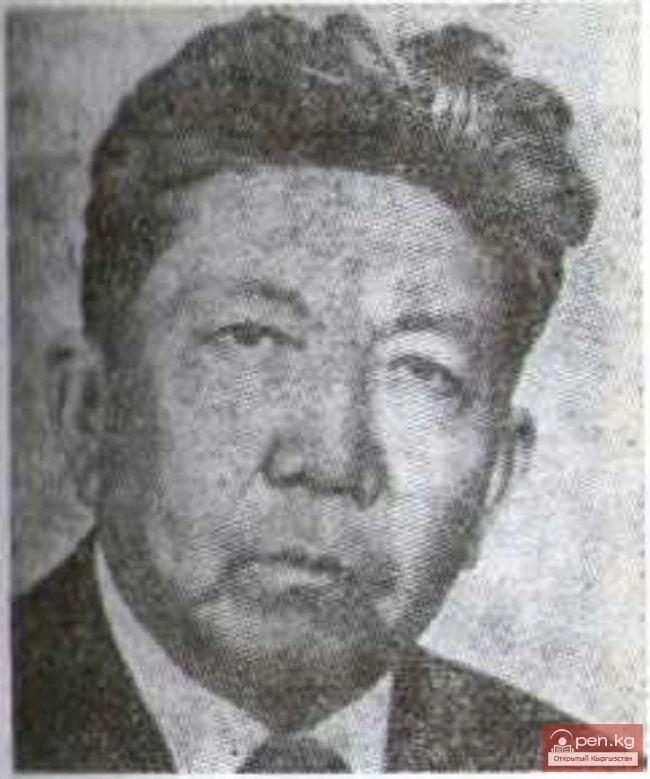
Poet Abdilda Belekov
Poet A. Belekov was born on February 1, 1928, in the village of Korumdu, Issyk-Kul District,...
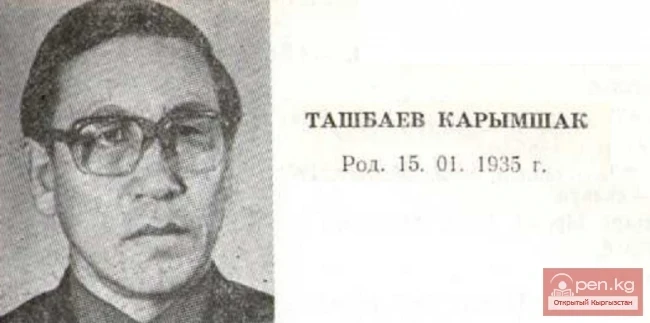
Poet Karymshak Tashbaev
Poet K. Tashbaev was born in the village of Shyrkyratma in the Soviet district of the Osh region...
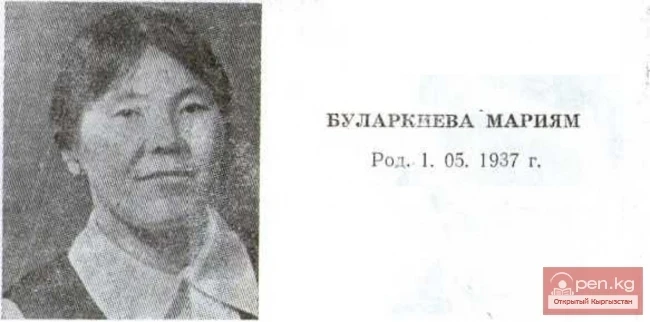
Poet Mariyam Bularkieva
Poet M. Bularkieva was born in the village of Kozuchak in the Talas district of the Talas region...
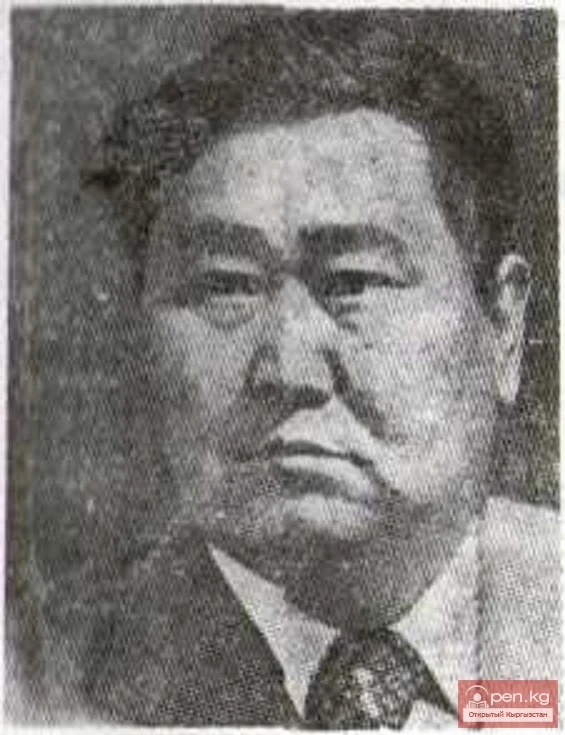
Poet Dzholdoshbay Abdykalikov
Poet J. Abdykalikov was born in the village of Tashtak in the Issyk-Kul district of the Issyk-Kul...
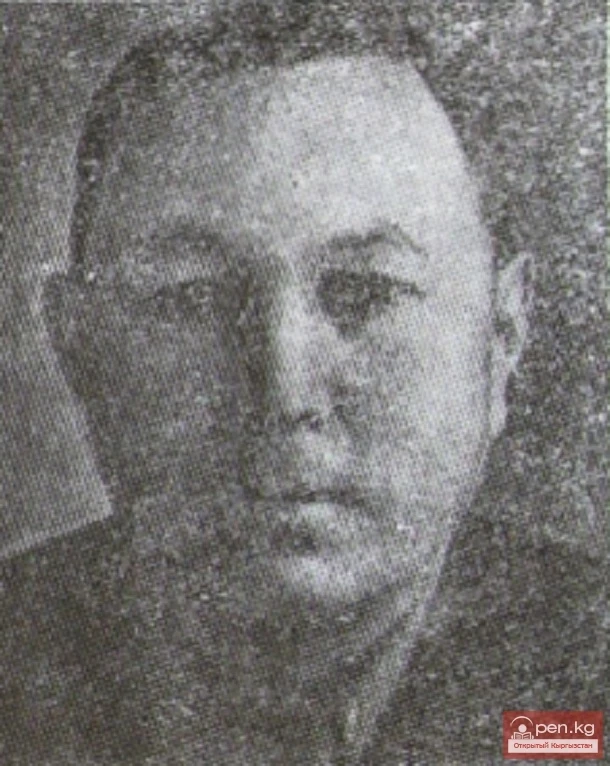
Improvisational Poet Ismail Boronchiev
Improvisational poet I. Boronchiev was born in 1910 - 1978 in the village of Alchaluu, Chui region...
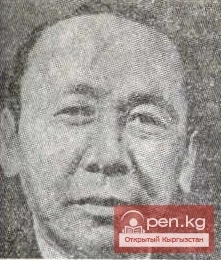
Poet Mukambetkalyy Tursunaliev (M. Buranaev)
Poet M. Tursunaliev was born on January 11, 1926, in the village of Alchaluu, Chui region of the...
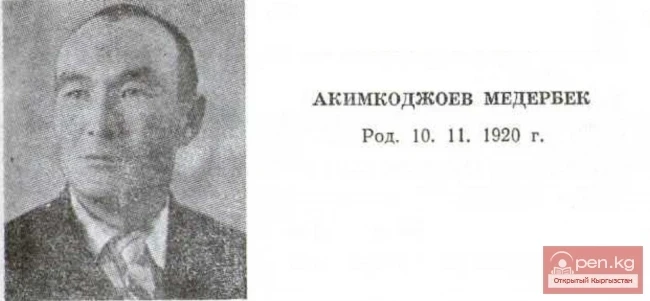
Poet Mederbek Akimkodzhoev
Poet M. Akimkodzhoev was born in the village of Bazar-Turuk in the Jumgal district of Naryn region...
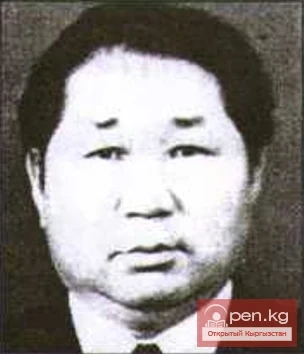
Salamatov Zholdon
Salamatov Zholdon (1932), Doctor of Physical and Mathematical Sciences (1995), Professor (1993)...
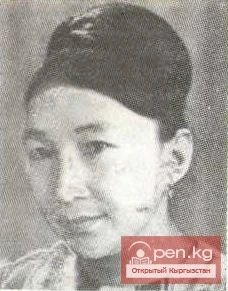
The Poet Jumakan Tynymseitov
The poet J. Tynymseitova was born on 11. 1929—29. 07. 1975 in the village of On-Archa in the...
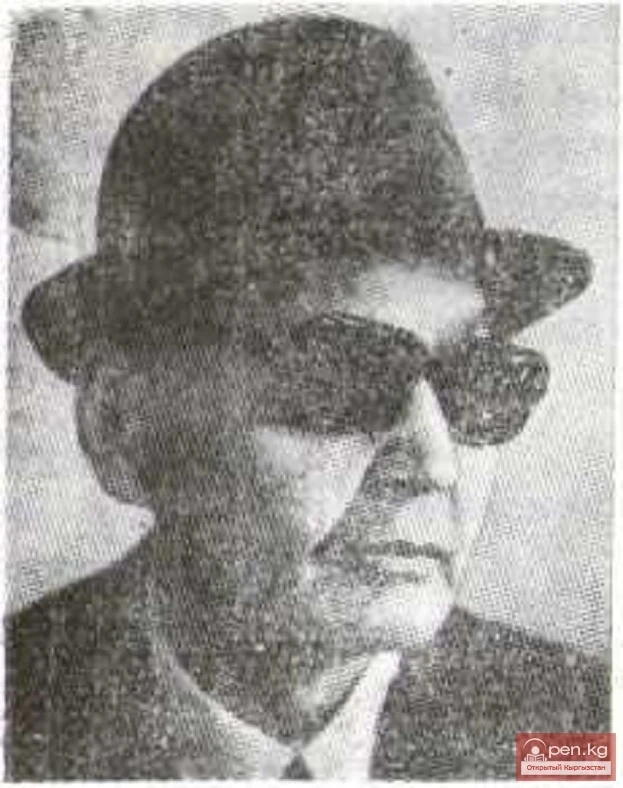
Poet Abdravit Berdibaev
Poet A. Berdibaev was born on 9. 1916—24. 06. 1980 in the village of Maltabar, Moscow District,...
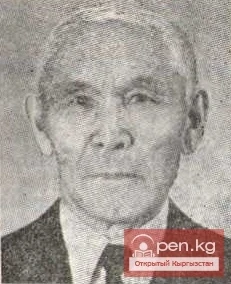
Literary scholar, prose writer, poet Dzaki Tashtemirov
Literary scholar, prose writer, poet Dz. Tashtemirov was born on October 15, 1913—October 7, 1988,...
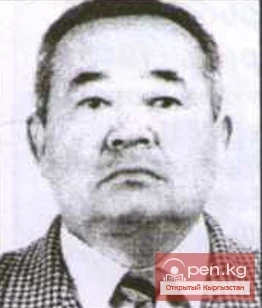
Zhorobekov Zholbors
Zhorobekov Zholbors (1948), Doctor of Political Sciences (1997) Kyrgyz. Born in the village of...
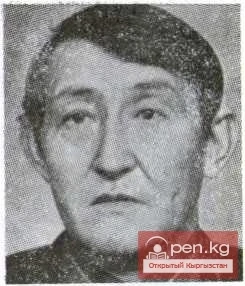
Poet Akynbek Kuruchbekov
Poet A. Kuruchbekov was born on December 5, 1922 — November 29, 1988, in the village of Eryktu,...
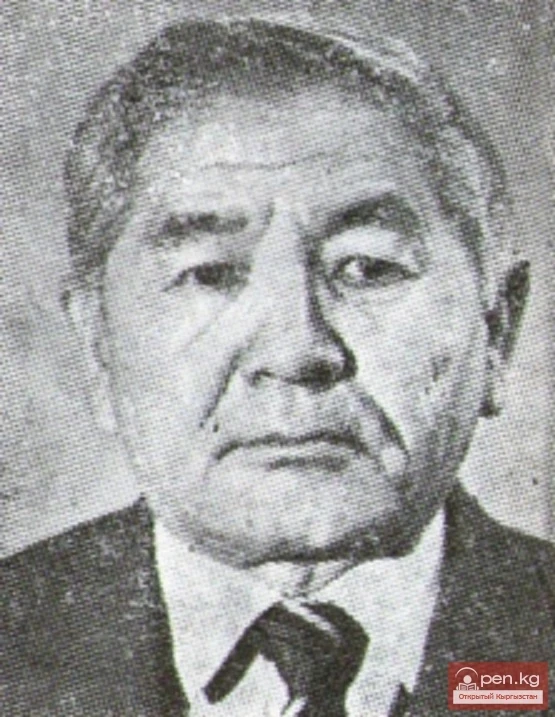
Poet Dzhaparkul Alybaev
Poet Dzh. Alybaev was born on October 12, 1933, in the village of Birikken, Chui region of the...
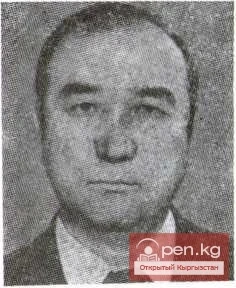
Poet, Prose Writer Dzhenbap Mambetaliev
Poet and prose writer D. Mambetaliev was born on December 18, 1938, in the village of Ottyk,...
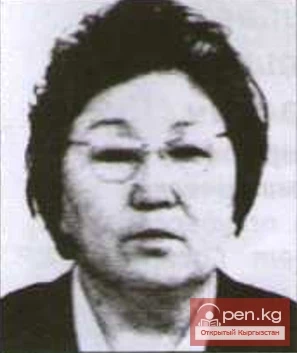
Kerimzhanova Bubu Dyikanbaevna
Kerimjanova Bubu Dyikanbaevna (1920-1993), Candidate of Philological Sciences, Corresponding...
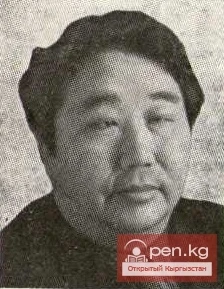
The Poet Smar Shimeev
Poet S. Shimeev was born on November 15, 1921—September 3, 1976, in the village of Almaluu, Kemin...
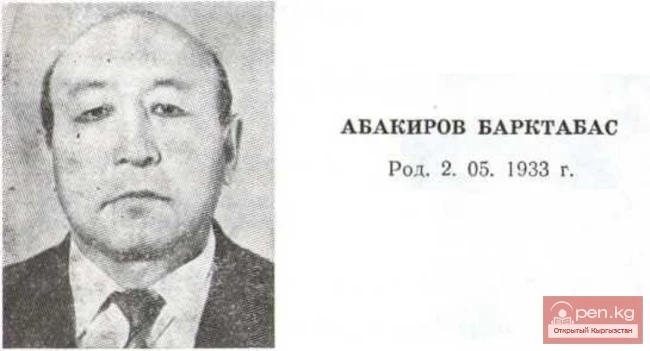
Poet, Journalist Barktabas Abakirov
Poet and journalist B. Abakirov was born in the village of Kum-Dyube in the Kochkor district of...
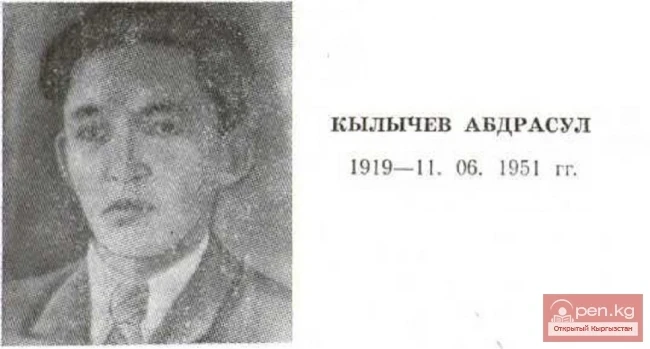
Poet, Prose Writer Abdrasul Kylychev
Poet and prose writer A. Kilychev was born in the village of Orto-Sai near the city of Naryn in...
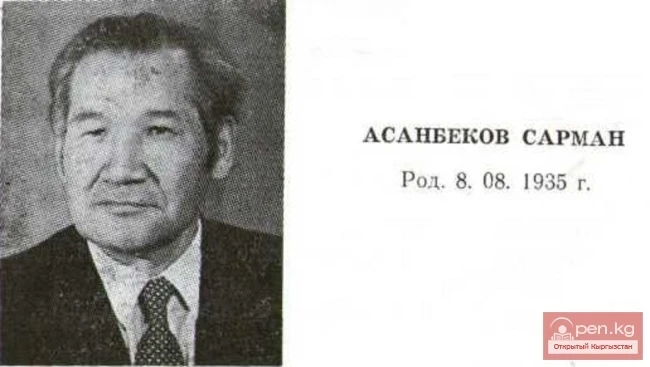
Poet, Art Historian Sarman Asanbekov
Poet and art critic S. Asanbekov was born in the village of Aral in the Talas region of Kyrgyzstan...
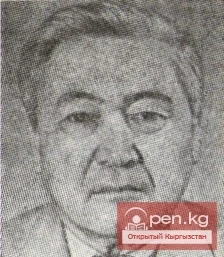
Prose Writer, Translator Bakan Sexenbaev
Prose writer and translator B. Sexenbaev was born on August 20, 1932, in the village of Burana,...
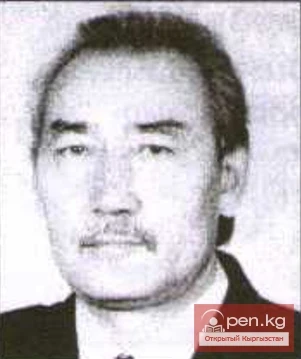
Kenesariyev Tashmanbet
Kenesariyev Tashmanbet (1949), Doctor of Historical Sciences (1998), Professor (2000) Kyrgyz. Born...
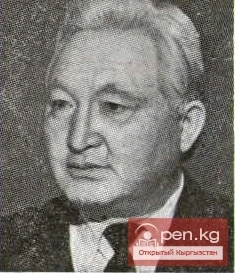
Poet, Translator Orozbay Sulaymanov
Poet and translator O. Sulaymanov was born on February 20, 1928, in the village of Novorossiysk,...
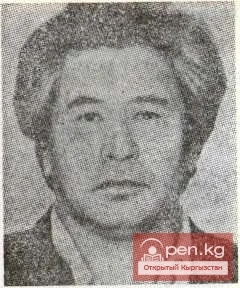
Poet Ramis Ryskulov
Poet R. Ryskulov was born on September 9, 1934, in the village of Kyzyl-Tuu, Moscow District,...
